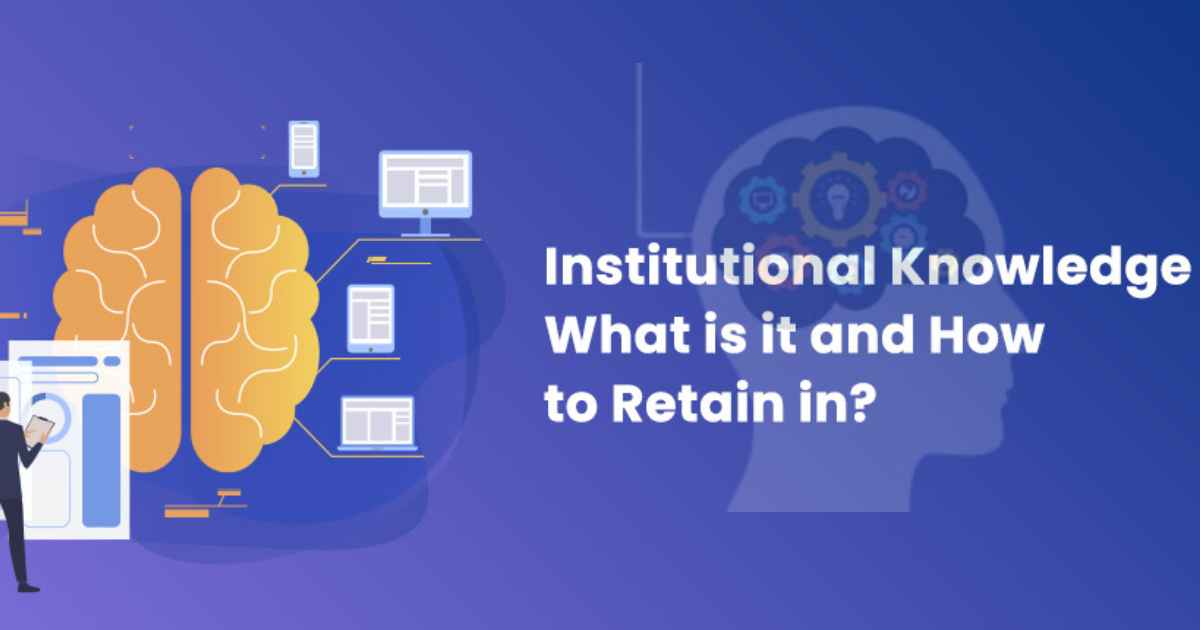Institutional memory is the method of relaying the work done by the previous person to his successor when there is a change in leadership or responsibility. Every person has some responsibility for the operation of the state, office, or organisation. According to that responsibility, the institution or organisation is working to fulfil its purpose.
Introduction:
The idea of "institutional memory" is crucial in a world where enterprises are always changing and information is continually changing. The collective knowledge and experience retained by an organisation is referred to as institutional memory, and it is an essential tool for decision-making, problem-solving, and creativity. This article goes deeply into institutional memory, illuminating its purpose, potential uses, and difficulties in preservation.
The Significance of Institutional Memory
If there is a change in responsibility or leadership, the new person must have learned from the previous person how the previous work was done, what problems there are, which ones should be improved, and which ones should be taken forward. For which you usually have to report the work you have done.
When any person is sent to the programme as a representative, he speaks as an organisation. The organisation should take care of what he said there.There is a trend to practise it as a BTOR (back report) in international organisations. The importance of such reporting is very important for the improvement of the work done in the past. This trend should be promoted in our government agencies as well.
Generally, in the case of employees, it is customary to submit a report of the trip to the related agency after returning from a foreign trip. But rather than just submitting the report, it is more important whether the matter has been implemented or not. There is little practice in implementing this. On the other hand, if an employee attends a meeting as a representative of any organisation, there is no practice of reporting or keeping what he says there.
At first, I myself used to submit reports to the head of the office in writing. However, the practice of reporting in this way is not institutionalised. Such practices should be institutionalised. Each office should make its own rules so that those who go to the programme keep records. If this happens, it is rather compelling. Now this practice has not been institutionalised, as it happens whether or not records are kept.
On the other hand, it is necessary to establish such a practice for policymaking. There is also the adoption of policies made under the guise of institutional memory. All the ministries can adopt the policies made with their help.
Applications of Institutional Memory
Institutional memory helps even if there is a change in leadership or no leadership. Even in such cases, institutional memory helps increase the efficiency of office work. When a new leader comes to an office, he has to work from the beginning, so it takes time for him to learn. If the institutional memory is practised, it will be easier for the new person coming to the leadership to understand the organisation. But even the transfer of the leadership level and the employees to important responsibilities in a short period of time in our country has not been able to be practised.
FAQs
Q: How can organisations prevent the loss of institutional memory due to employee turnover?
To mitigate the impact of turnover, organisations can implement knowledge transfer programmes, document processes, and encourage mentorship to pass on critical knowledge.
Q: Can technology help in preserving institutional memory?
Yes, modern knowledge management systems, digital archives, and cloud storage solutions make it easier to preserve and access institutional memory.
Q: What is the role of leadership in promoting institutional memory?
Leadership should prioritise knowledge sharing, create a culture of learning, and provide the necessary resources for preserving institutional memory.
Q: How can small businesses benefit from institutional memory?
Even small businesses can benefit from documenting processes, creating an organisational history, and encouraging employees to share their experiences and insights.
Q: What are the risks of relying too heavily on institutional memory?
Reliance on institutional memory without adapting to changing circumstances can lead to rigidity and missed opportunities for growth.
Q: Are there any industries where institutional memory is particularly critical?
Industries with complex regulatory requirements, like healthcare and aerospace, rely heavily on institutional memory to ensure compliance and safety.
Conclusion
Institutional memory is the lifeblood of organisations, providing the knowledge and insights needed for informed decision-making, innovation, and long-term success. Its applications are vast, ranging from project management to crisis response. However, preserving institutional memory comes with challenges, including technological advancements and employee turnover. To thrive in a dynamic world, organisations must prioritise the preservation of their collective wisdom.
Read Also...
Exam Preparation for Government Jobs: Tips and Strategies. ( Click Here...)
Public Service Careers: Opportunities, Challenges, and Rewards. ( Click Here...)





